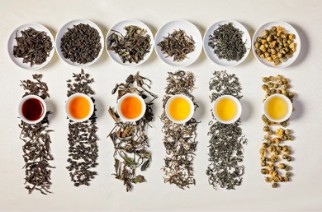
Tea is famous as one of the top three beverages in the world. The nutritional value of tea is very high and contains more than 300 kinds of chemical components that are beneficial to the human body. Among the main nutrients are proteins and amino acids, fats, sugars, minerals, and trace elements and vitamins; among them, there are as many as 10 kinds of vitamins, including vitamin A, vitamin D, vitamin E, vitamin K, vitamin B1, vitamin B2, vitamin B3, vitamin B5, vitamin B6, vitamin H, vitamin C, niacin and inositol. In addition, tea also contains medicinal ingredients with various functions, such as tea polyphenols, caffeine, tea polysaccharides, and so on. These are the material basis for the high nutritional value and medicinal effects of tea.
With the improvement in living standards, consumers gradually began to pay attention to the chemical composition and nutritional value of tea. Lifeasible provides a one-stop platform for tea nutrient testing, covering a wide range of black, green, yellow, white, and black teas through a global network of state-of-the-art laboratories. Our solution covers the entire process, from sample processing to data analysis; all you need to do is provide the original sample. We will process and test the samples according to strict standards, ultimately providing accurate test reports.
With our experience, expertise, and state-of-the-art facilities, we offer the following tea nutrient testing solutions, including but not limited to:
| Tea Nutrient Testing Items | Tea Nutrient Testing Items Description |
| Total Free Amino Acid Testing in Tea | Tea contains about 1% to 4% of amino acids, 26 of which have been identified, containing 20 protein amino acids and 6 non-protein amino acids. The most significant is theanine, glutamic acid, aspartic acid, and arginine. We provide a simple method to determine the total amount of free amino acids in tea. |
| Total Sugars Content Testing in Tea | Tea contains about 20%~30% sugar in dry matter, divided into two categories: water-soluble and non-water-soluble. We can test the total sugars in tea, including monosaccharides, disaccharides, polysaccharides, and small amounts of other sugars. |
| General Metal Nutrients Testing in Tea | Drinking tea can supplement the mineral elements needed by the human body. Tea contains macronutrients and trace elements required by the human body; these elements have an important role in the physiological functions of the human body. We can test the nutritional elements in tea, including phosphorus, calcium, potassium, sodium, magnesium, sulfur, iron, manganese, zinc, selenium, copper, fluorine, and iodine. |
| Unique Nutrients Testing in Tea | Tea is rich in nutrients and medicinal ingredients, with various disease-preventing functions and health effects, and is therefore known as a natural health or wellness drink. We offer a variety of assays to detect the unique nutrients in tea, including flavonoids, tea polyphenols, catechins, alkaloids, caffeine, theaflavin, etc. |
Lifeasible offers customized tea nutrient testing solutions using modern scientific techniques to perform an in-depth analysis of tea functions. Our dedicated team provides customized solutions to ensure that our clients' needs are met. If you are interested in these services or solutions, please contact us for the latest information.
Lifeasible has established a one-stop service platform for plants. In addition to obtaining customized solutions for plant genetic engineering, customers can also conduct follow-up analysis and research on plants through our analysis platform. The analytical services we provide include but are not limited to the following:
STU-CRISPR System Improves Plant Genome Editing Efficiency
April 19, 2024
Application of Exosomes in Facial Beauty
April 12, 2024